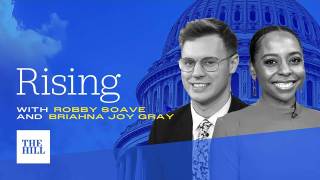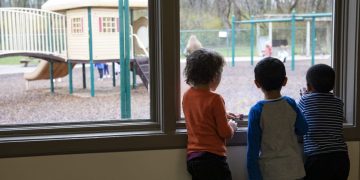Penn, Harvard resignations show ‘safe spaces’ can backfire. Here’s how we can move to ‘brave spaces’

In recent years, the concept of the university as a “safe space” has come under scrutiny. The notion of insulating students from controversial ideas to protect marginalized groups, once heralded on many campuses, is being re-examined — both due to cultural war tensions but also more genuine questions around free speech. With the recent resignations at Harvard and the University of Pennsylvania exemplifying the turmoil in higher education, we believe the time has come for universities to evolve from “safe spaces” to “brave spaces” that encourage respectful, candid exchanges of divergent perspectives.
For students, at the core of this shift into brave spaces is a willingness to lean into productive discomfort. Rather than retreat into ideologically homogeneous tribes, students must proactively seek out experiences that broaden their world views. This might involve attending affinity and religious group events outside one’s own, or participating in debates that push the boundaries of knowledge and test rhetorical skills against opposing arguments. It requires viewing such exchanges not as threats but as opportunities for intellectual and personal growth.
To promote equitable dialogue, faculty must play a pivotal role. For instance, they could have students moderate classroom discussions, allowing students to understand how discussions can be dominated from an outsider’s perspective. The goal is to build self-awareness and skills for more inclusive participation inside and outside the classroom. Faculty development programs could similarly train professors not only to present multiple perspectives neutrally but also to engage students in critically weighing their merits through structured discussions. Skilled facilitation demonstrates how to maintain mutual respect across divides without dodging difficult topics — a key critique of academia today.
For their part, administrators should devise policies that safeguard academic freedom while proscribing harassment and hate speech. Campus programming should make space for controversial speakers representing a mosaic of outlooks, so long as events are conducted in the spirit of pluralism. University leaders shape the environments in which brave spaces can take root by ensuring that community guidelines balance liberty with dignity.
Supporting student well-being is equally imperative to creating these brave spaces. Mental health resources like counseling and peer forums allow students to process new information and experiences at their own pace. The priority is not to control the campus discourse but rather to equip students with the tools to participate without fear and self-censorship. Indeed, regular surveys, town halls and feedback processes can empower students, faculty and staff to shape action plans responsive to on-the-ground insights.
Finally, the brave spaces paradigm necessitates rethinking what success looks like in higher education. Learning is measured not merely by content absorbed but by gains in the capacity to understand and humanize ideological foes. A successful graduate is not a political partisan or cultural chauvinist, but one able to collaborate across differences in diverse environments.
Upholding these ideals will require patience. Universities must support community members in challenging their own orthodoxies and speaking their truths, backed by policies and resources that make these acts possible.
Imagine seminar discussions where students critique arguments, not personalities. Envision non-tenured faculty leveraging their expertise to facilitate constructive dialogue on charged issues. Picture campuses that embrace moral complexity and ideological diversity as kindling for knowledge rather than impediments to be shouted down. Dream of graduates prepared to reason alongside rivals with compassion.

Academia today is eating itself and is desperately in need of this kind of reinvention. Between curricular tugs-of-war and fraught debates over speakers, administrators are increasingly pressured to reexamine the social contracts underlying education. If we collectively view these catalysts as invitations for growth rather than crises of conflict, as opportunities to critique opposing arguments in the open rather than driving them underground, universities can evolve into sites of understanding that better reflect their animating ideals. This will require concrete changes in the culture of students, faculty and administrators.
The dividends of these efforts for higher education and society at large will be profound. Perhaps above all, fulfilling the university’s quintessential purpose — not just accumulating information, but learning to make meaning — depends on this kind of courage. Indeed, anti-cancel culture is the most progressive cause there is. Without such a commitment to speaking one’s truth in the face of intense legal and ideological opposition, figures like Dr. Martin Luther King Jr. might not have triumphed in advancing civil rights. In a world where voices clash and opinions diverge, our universities must stand as bastions of brave dialogue, where bravery prevails over the silence of conformity.
Cameron Sabet studied religion and management at the bachelor’s and master’s levels at the University of Pennsylvania, and is now a student at Georgetown University School of Medicine. Simar Bajaj is a Harvard College student, Marshall Scholar, award-winning journalist, and research fellow at Mass General Hospital and Stanford University School of Medicine.
regular post copyright











